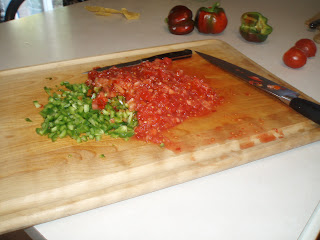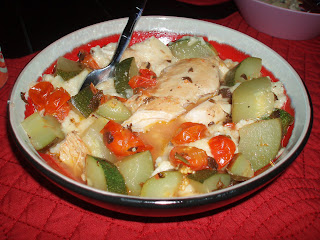
Look around; Fall descends. Gathering in the rest of the garden's produce (three weeks ago), I realized that years have flown by since I last experienced the fullness of summer, fat and pregnant with life, with love. Over twelve years ago I remember visiting the Pacific Northwest, living in a summer daze of butter and banana pancakes--filling my thoughts with hazy July poetry, a daydream of sunlight resting heavily on leaves, as glinting glares and shadows played across my closed eyelids. Not even so long ago--nine or ten years perhaps--I rode motorcycles, climbed cliffs, filled my rooms with green, growing things, bathed in icy rivers, watched fireworks, and laid content in a twin bed I shared with Summer and the full August moon. I sighed, heavy with satisfaction those summer nights.

Years pass as I keep waiting to feel that same fatness, that same content-ment in the heat of July and August. Yet year after year, the warm weather burdens rather than relieves. I wonder now if the summer of my life will ever return--if fall and winter have become my permanent realities. Still, I've found peace in those non-anticipated months and seasons. I may no longer experience Summer as I once knew her, at least in my current time and space. Yet God has compensated with a fullness of fall and winter, unexpectedly so.

Can fall--a season personified by death and decay--truly be enjoyed? Can such a thing be embraced? Certainly. Most of my favorite metaphors involve food. When my daughter, Eden, spotted a chocolate bar last week, she remarked, quite frankly, "I like chocolate..." and after a considering pause: "Pickles are icky and yucky." She spoke candidly, with no pickles in sight. Life, as Eden has begun to observe, can be chocolate one moment and pickles the next. What reaction is more human than to desire the sweet, the summer in our lives, while dreading the bitter and acidic? Perhaps strangely, then, I've observed my own appetite for vinegary foods. Maybe my taste buds predestine me for sorrow; I have, after all, always enjoyed pickles, lemons, and sour cream. Fortuitously, the Lord called me to Romania, a land filled with sourness, and sadness.
 Roman-ians pickle their summer harvest to savor through-out the fall and winter months. Pickled peppers, pickled cabbage, pickled beans and carrots, even a kind of pickled potato salad. In ways, we store the summer produce in our lives to feed on during winter months--even if the sweet has turned a little sour. The trick is enjoying that bitterness as much as we can enjoy a pickle, borscht, lemon curd, or sarmale with smantana. We can savor the sour even more than the sweet pepper when it's the only fruit available to put to our lips. The trick is to still eat, to still devour life, despite the current flavor.
Roman-ians pickle their summer harvest to savor through-out the fall and winter months. Pickled peppers, pickled cabbage, pickled beans and carrots, even a kind of pickled potato salad. In ways, we store the summer produce in our lives to feed on during winter months--even if the sweet has turned a little sour. The trick is enjoying that bitterness as much as we can enjoy a pickle, borscht, lemon curd, or sarmale with smantana. We can savor the sour even more than the sweet pepper when it's the only fruit available to put to our lips. The trick is to still eat, to still devour life, despite the current flavor.
So, rather than holing ourselves up at home, I bundle the beasts and head out to harvest mazes where we easily lose ourselves in the dark--and we embrace the cold, the unknown, the fear, if just for passing moments. I walk with young ones out to our frozen garden, tearing the last summer fruits from their vines. We mulch leaves and spread them over the now barren earth, hoping that some day in the future the dirt will bloom again with life. We venture out to barns together, taking candid shots of our new family, thanks to an extremely talented and giving sister (I love you Megs), and we walk as Adam and Eve--thrust into the stark realities of life. Still, we do so smiling.

I once believed the term "Fall" (as in the season) originated from the action of leaves descending from trees during the cooling period that precedes winter. Upon further reflection, however, I recognize tangible links between autumn, death, and the Fall of humankind. When God thrust Adam and Eve from paradise to tough things out in a dry and unyielding environment, they experienced a dramatic shift from sweet to sour. They descended, just as the leaves do, from paradise to earthen reality. As the melodic Danny Elfman croons, "Whoever said that life on this planet would ever be paradise?" I guess I never had that promise of paradise--none of us do. And that's the way life goes... everyone around us ends up feeling the same sensation of pain, sooner or later. At some point that pain will end; at some point spring returns. Apart from the seasons, however, it's an elusive, mysterious return. What do we do in the intervening minutes, months, years? As I await a return to the plump, heavy ripeness of summer--the easy joy and laughter, the days of skinny-dipping and sandstone hikes, when visions of dancing in a summer dress beneath swaying boughs of a twinkle-lit backyard tree could become a reality--I enfold myself in the engulfing, bitter wake.


































